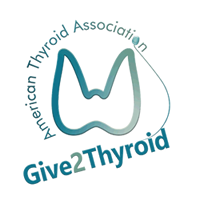BACKGROUND
Patients diagnosed with thyroid cancer usually have an excellent prognosis. This is due to effective therapies, including surgery and, when needed, radioactive iodine therapy. Radioactive iodine works like a “magic bullet”, as it is taken up and destroys only thyroid cells, both normal and cancerous. The process of destroying residual thyroid tissue is called radioactive iodine ablation. In patients who have an indication to undergo radioactive iodine ablation, there is currently no agreement regarding the best timing of administration. The objective of this study was to evaluate the response to treatment when giving radioactive iodine within 3 months of thyroidectomy versus ≥3 months after surgery.
THE FULL ARTICLE TITLE:
Li H et al 2018 Delayed initial radioiodine therapy related to incomplete response in low- to intermediaterisk differentiated thyroid cancer. Clin Endocrinol (Oxf ) 88:601–606. Epub 2018 Feb 18. PMID: 29338092.
SUMMARY OF THE STUDY
A total of 235 patients with low-to -intermediate risk thyroid cancer were included in the study. These patients were treated with radioactive iodine between December 2008 and May 2015 following a total thyroidectomy at the Peking Union Medical College Hospital. They were divided into two groups: Group 1 included 187 patients who received radioactive iodine ablation <3 months following surgery and Group 2 included 43 patients who received it ≥3 months after surgery. The two groups were similar in regard to age, sex, type of cancer and cancer stage. Response to therapy was categorized as excellent, indeterminate or incomplete (persistent disease by imaging or blood tests).




